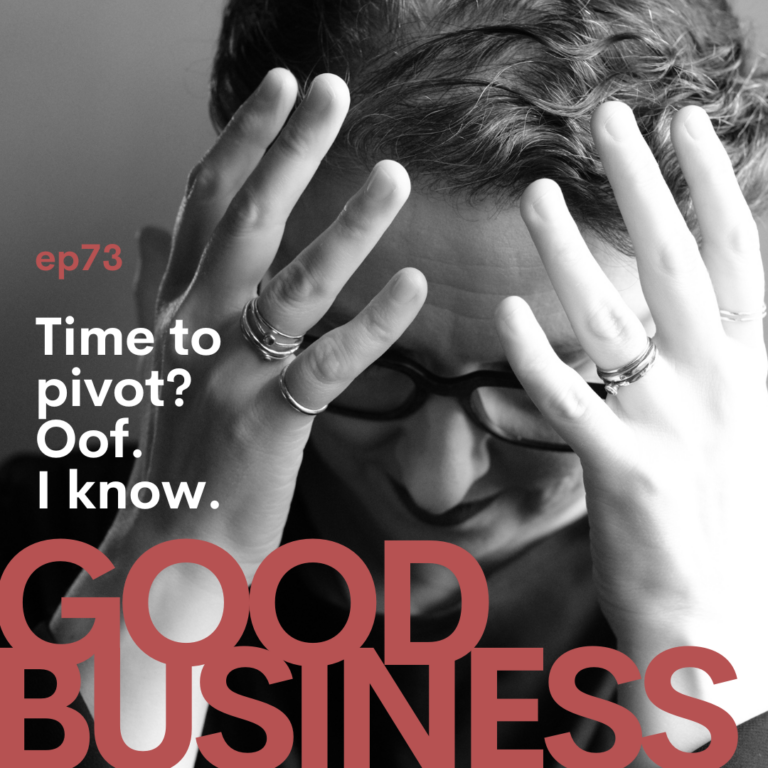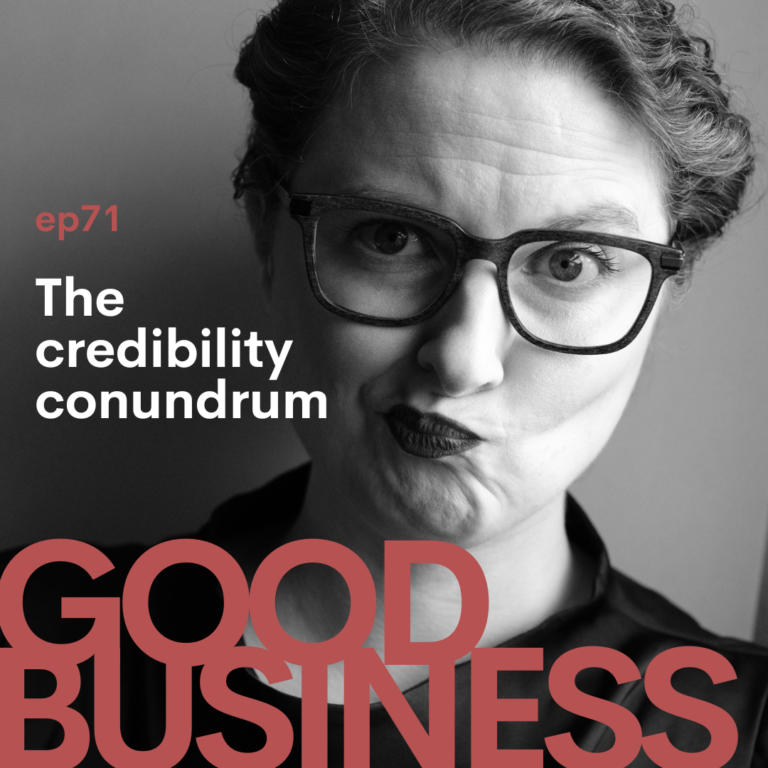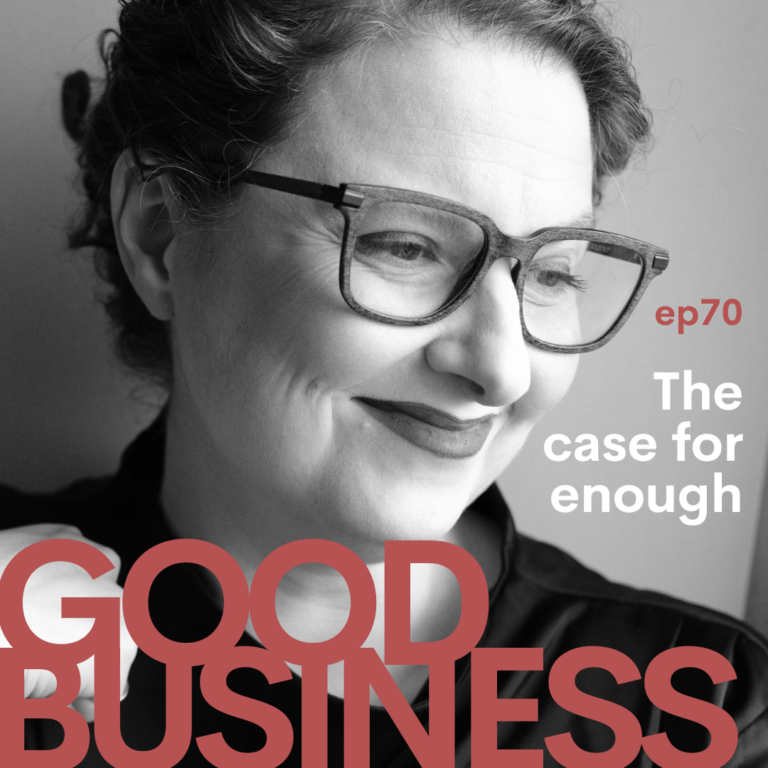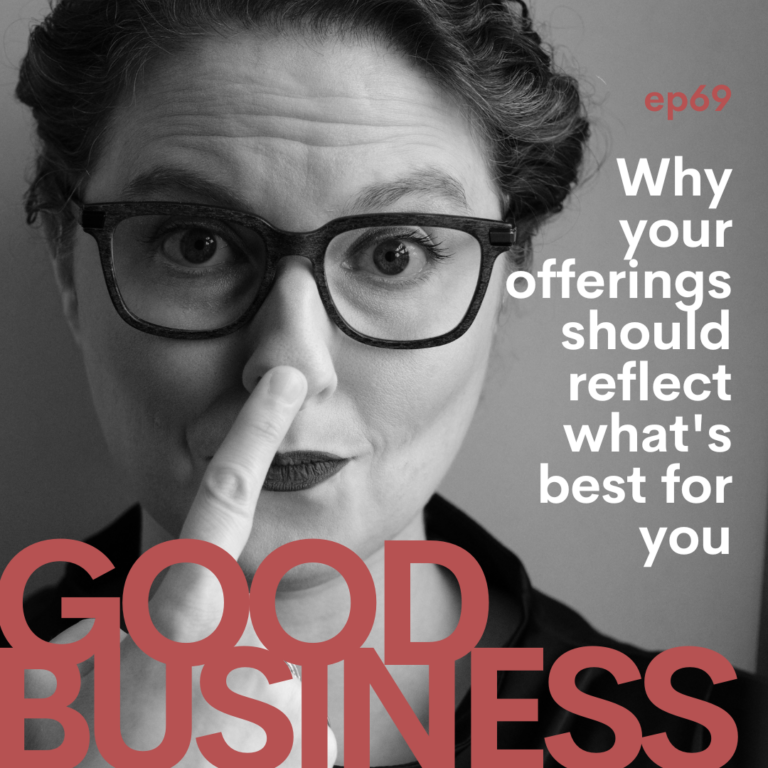Today’s topic is mistakes in business. Why? We all make them. Good business involves managing both good and bad situations effectively, with elegance, education, confidence. This skill is often overlooked. Let’s explore common mistakes, how people typically handle them (wrongly!), and better approaches. We’ll discuss power dynamics, the upside of handling mistakes well, practical tools and skills, and the bigger picture beyond client relationships.
[NOTE: The transcript below was generated with the help of AI. I do not advocate for the use of AI in copywriting in general, but see it as a useful tool for improving efficient editing of my own creative content. None of the actual content of the episode or the transcript was AI-generated. I just let the computer help me clean up the text so it can be more easily understood and consumed. ~i.]
Common Mistakes:
- Late deliveries, product errors, disappointed clients, failure to follow through (service providers).
- Wrong items, late arrivals, damaged goods, grumpy clients (product-based businesses).
- Everyone has faced these. Nobody escapes unscathed. My own experience: 15 years, 10 bad client experiences, 3 who think I’m the devil.
Why Over-Apologizing and Overcompensating Hurt:
- Clients expect it, making them more demanding.
- It changes the power dynamic, making you seem insecure and unprofessional.
- You lose control, potentially damaging the relationship.
Maintaining Power Dynamics:
- Over-apologizing and overcompensating can lead to:
- Client insecurity and aggression.
- Client micromanagement and fear.
- Breakdown of trust and relationship.
- You need to maintain power to deliver effectively and earn continued trust.
Taking Accountability:
- Apologize only for what you could have done better.
- If the mistake had impact, apologize for that (e.g., late delivery affecting client’s business).
- Don’t overexplain or blame yourself.
Addressing Mistakes:
- For minor issues or no impact: apologize, move on to next project stage.
- For high-impact issues:
- Apologize for the effect.
- Offer compensation if possible.
- Outline a plan to fix the issue and prevent recurrence.
- Move forward.
- If the client remains dissatisfied, offer to end the contract. Don’t tolerate abuse.
Surprising and Delighting Clients:
- Go beyond fixing the issue.
- Surprise them with a thoughtful gift unrelated to your work.
- This personalizes your relationship and builds goodwill.
- Example: Sending extra coffee for a broken bag.
Standing Firm Against Unreasonable Clients:
- If you’re right and the client is abusive, calmly stand your ground.
- Remind them of agreements and contracts.
- If necessary, end the contract. It’s not worth taking abuse.
- This applies to all businesses, though specific boundaries may vary.
Shifting the Conversation and Setting Expectations:
- Don’t dwell on mistakes. Remind the client it was a one-off and move forward.
- Don’t let the client control the conversation.
- Set clear expectations about communication and professionalism from the start.
Conclusion:
- Mistakes are inevitable, but handling them well can build strong client relationships.
- Be confident, graceful, and human.
- Treat clients as equals and set healthy boundaries.
- You can turn a bad situation into a positive one and create loyal clients.
More Episodes
GB74: What’s your bread and butter?
Welcome back to Good Business. I’m your host, Illana Burk. Today, we’re talking about the most central parts of your work. The things that always feel true. The things that consistently make money. The things that people always...
GB73: Time to pivot? Oof. I know.
Welcome back to The Good Business Podcast. I’m your host, Illana Burk. Today, we’re talking about the very complicated moment when you realize that it’s time to make a significant change in your work. And these moments are never...
GB72: How to decide where to put your energy
Welcome back to Good Business. I’m your host, Illana Burk. Today, we’re talking about decision-making. Specifically, how do you decide where to put your energy around self-promotion when resources feel limited...
GB71: The credibility conundrum
Welcome back to the Good Business Podcast. I am your host, Illana Burk. And today, we're talking about credibility. What is it? Why do you need it? And how do you establish it in the age of the internet when you can...
GB70: The case for enough
Welcome back to the Good Business Podcast, everybody. I am your host, Illana Burk, and today we are talking about enough. So we begin with one word, and that word is more. That's what we're all supposed to want, right?...
GB69: Why your offerings should reflect what’s best for you
We’re diving into a topic that might just flip the script on how you think about your offers: “Why Your Offerings Should Reflect What’s Best for You Before They Reflect What’s Best for Your Clients.” Sounds counterintuitive. I know. Well, stick around because I’m gonna break it down in a way that’s both practical and super powerful.
First, I’m going to talk about what all this has to do with niching and marketing, then I’ll explain exactly how to do this, and finally I’ll dig into how this improves your leadership positioning.






